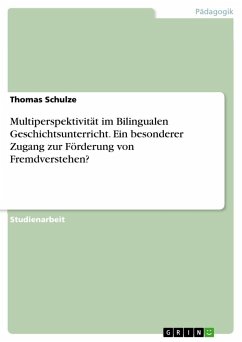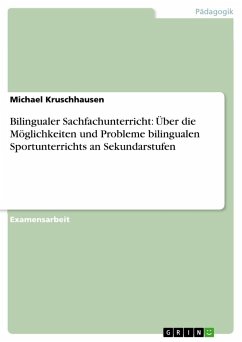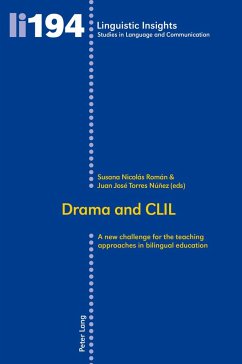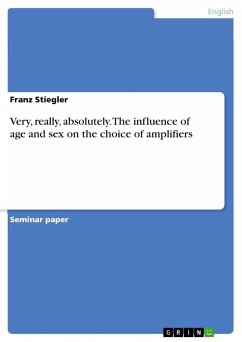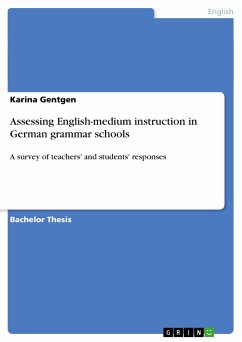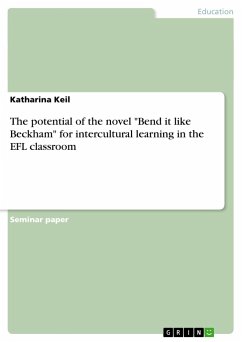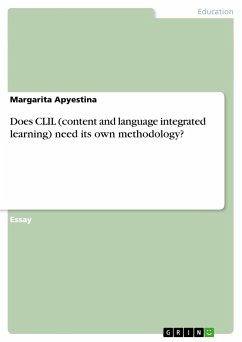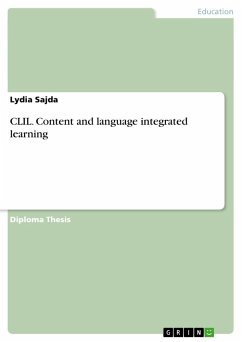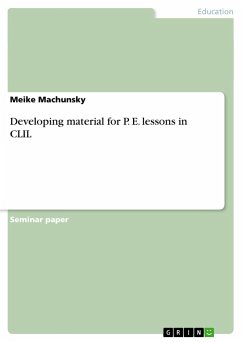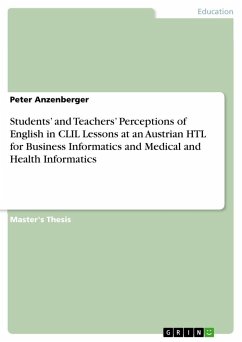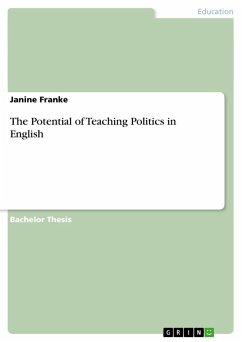
The Potential of Teaching Politics in English

PAYBACK Punkte
0 °P sammeln!
Bachelor Thesis from the year 2012 in the subject Didactics for the subject English - Pedagogy, Literature Studies, grade: 1,0, Dresden Technical University, course: Gemeinschaftskunde / Sozialkunde, English, language: English, abstract: Within the last twenty years the concept of content and language integrated learning (CLIL) has gained enormous popularity among German schools. This trend might indicate a positive development towards increased bilingual competence in different fields, such as social studies, science and technology. However, many teachers are sceptic. They are afraid that by ...
Bachelor Thesis from the year 2012 in the subject Didactics for the subject English - Pedagogy, Literature Studies, grade: 1,0, Dresden Technical University, course: Gemeinschaftskunde / Sozialkunde, English, language: English, abstract: Within the last twenty years the concept of content and language integrated learning (CLIL) has gained enormous popularity among German schools. This trend might indicate a positive development towards increased bilingual competence in different fields, such as social studies, science and technology. However, many teachers are sceptic. They are afraid that by teaching their subject in a foreign language, they lose precious time necessary for teaching subject specific contents. The question of how an integration of language and content learning should be established is still being discussed. It is generally agreed upon the fact that CLIL is not to be considered as simple extension of foreign language learning but as interweaving of content and language - of theoretical and practical knowledge. Nevertheless emphasis is laid on subject specific contents, many teachers are not sure to what extent and in which way the foreign language as the predominant medium of instruction is to be taught. Moreover, in Saxony there neither is a curriculum, nor are there any recommendations specifically developed on the needs of different subjects taught in the integrated way. This relatively new concept of instruction requires teachers to be strongly committed and willing to invest extra time and work in order to turn the idea of CLIL into a successful attempt of learning and teaching. Considering the effort that has to be made, there must be a strong motivation for establishing such learning environments. Some teachers may think that by learning contents through the medium of a foreign language, foreign language acquisition happens automatically; others favour the potential of intercultural learning. In order to find out about some of the reasons why content and language integrated learning is currently being such a success in German schools, I would like to examine the example of political education in Saxony and its potential of being taught in English. For clarifying the notions applied later on, I will firstly consider the linguistic concept of bilingualism and then outline the rationale of content and language integrated learning giving an overview of current approaches towards CLIL. Afterwards I will consider general principles and aims of political education and foreign language teaching. By analysing and comparing the Saxon curricula of the subjects English and politics I will try to find the benefits and challenges emerging from teaching politics in English.




